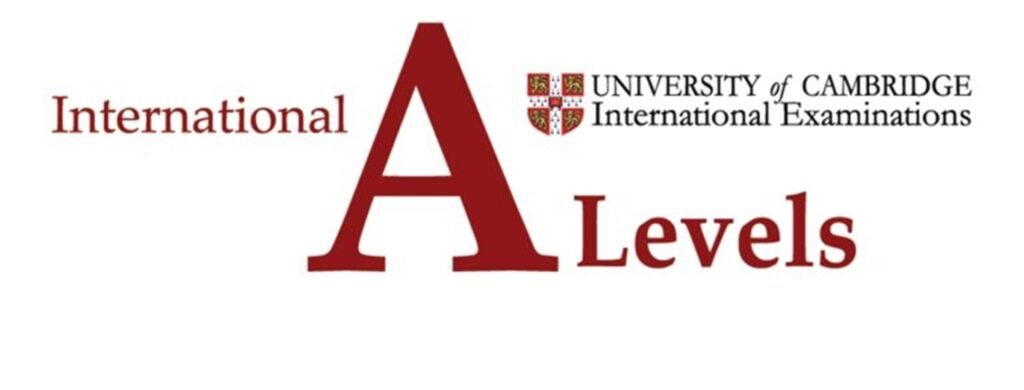What is A Level Education? A Complete Guide for Students and Parents (2026)

Introduction
In today’s competitive academic world, students and parents are increasingly turning to A Level education as a pathway to international universities and career success. Especially in countries like Pakistan, A Levels are becoming the gold standard for pre-university qualifications.
Table of Contents
ToggleBut what exactly are A Levels? How do they compare to other systems like FSc or IB? And why should students consider them?
Let’s break it all down.
What is A Level Education?



A Levels (Advanced Levels) are subject-based qualifications offered as part of the UK education system, typically studied over two years. A Level education is administered by examination boards such as:
– Cambridge Assessment International Education (CAIE)
Students usually study A Levels between the ages of 16 and 19, after completing O Levels or equivalent qualifications. A Levels are recognized by top universities globally and serve as a key entry requirement for higher education.
History and Origin of A Levels

A Levels were first introduced in the UK in 1951 to replace the old Higher School Certificate. Over time, the system spread internationally through the British Council and now operates in over 130 countries, including Pakistan, UAE, India, and Singapore.
In Pakistan, the Cambridge International A Levels are the most popular, and they have gained substantial recognition from the Higher Education Commission (HEC) and universities nationwide.
A Level vs FSc: What’s the Difference?
Here’s a quick comparison between A Levels and FSc (Intermediate) in Pakistan:
Feature | A Levels | FSc (Intermediate) |
Curriculum | British (CAIE/Edexcel) | Local (Federal/Provincial Boards) |
Duration | 2 years (AS + A2) | 2 years |
Medium of Instruction | English | Mostly English/Urdu Mix |
Subject Flexibility | High (choose 3-4 subjects) | Limited (pre-defined groups) |
Global Recognition | Very High | Moderate |
University Entry | Preferred for foreign universities | Common for local universities |
Popular A Level Subjects
Students typically choose 3 or 4 subjects based on their interests and future university plans. Some of the most popular A Level subjects include:
– Mathematics
– Physics
– Biology
– Chemistry
– Economics
– Accounting
– Computer Science
– Business Studies
– Psychology
– English Literature
– Media Studies
Tip: Choose subjects aligned with your career goals. For example, aspiring doctors should choose Biology, Chemistry, and Physics.
Grading System in A Levels
The grading scale for A Levels is:
– A* – Outstanding
– A – Excellent
– B – Very Good
– C – Good
– D – Satisfactory
– E – Minimum Pass
– U – Ungraded (Fail)
Each grade corresponds to a UCAS Tariff Point for university admissions in the UK. For example:
Grade | UCAS Points |
A* | 56 |
A | 48 |
B | 40 |
C | 32 |
D | 24 |
E | 16 |
Read more on the UCAS Tariff System
Benefits of A Level Qualifications

A Level education offers numerous advantages:
1. Academic Depth
A Levels allow students to focus on fewer subjects in greater depth, preparing them for university-level thinking.
2. Global Recognition
A Levels are accepted by universities in the UK, USA, Canada, Australia, UAE, Germany, and many more.
3. Critical Thinking & Research
A Level students learn to analyze, evaluate, and develop arguments — essential skills for higher education.
4. Flexible University Pathways
Whether you aim for engineering, medicine, business, or arts, A Levels offer subject combinations to match your aspirations.
Top A Level Schools in Pakistan
If you’re considering A Levels, here are some of the best schools in Pakistan offering this qualification:
2. Roots International Schools & Colleges (RISC)
4. Lahore Grammar School (LGS)
Each school may offer different combinations, extracurriculars, and counseling support. Visit their websites for detailed information.
How to Choose Your A Level Subjects

Choosing the right subjects is crucial. Here’s how to decide:
Step 1: Know Your Career Goals
Do you want to pursue medicine, engineering, law, or business?
Career Path | Recommended A Level Subjects |
Medicine | Biology, Chemistry, Physics |
Engineering | Maths, Physics, Chemistry |
Law | English, History, Psychology |
Business | Business, Economics, Accounting, Media Studies |
IT/CS | Computer Science, Maths, Physics, Media Studies |
Step 2: Research University Requirements
Check UCAS or local universities to see what subjects are required.
Step 3: Play to Your Strengths
Pick subjects that you are confident in and passionate about.
Conclusion

A Level education is a powerful stepping stone to academic and professional success. With its global recognition, academic depth, and university alignment, A Levels give students the freedom to craft their future.
Whether you’re in Pakistan or abroad, opting for A Levels can open doors to top universities worldwide. Just make sure to choose the right subjects, school, and study approach for maximum benefit.




